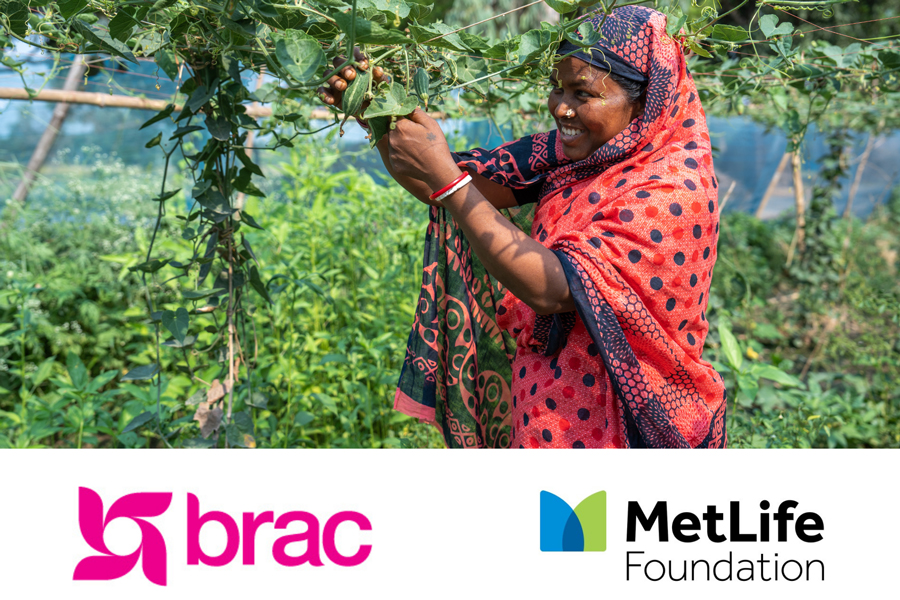
Published :
Updated :

BRAC and The MetLife Foundation have jointly launched a new programme that aims to support 3,300 families in the Barind Tract of Chapai Nawabganj, Joypurhat, Naogaon, and Rajshahi to lift themselves out of ultra poverty.
The Barind Tract is the most drought-prone and water-scarce region in Bangladesh, and lags behind the mainstream community in terms of income and human development indicators. It is home to a number of indigenous populations living in vulnerable conditions, according to a press release.
This initiative will use BRAC’s Graduation approach - a globally recognised, evidence-proven poverty eradication model - to holistically support households living in ultra-poverty, including indigenous communities. A context-specific, climate-sensitive, time-bound, and sequenced set of interventions will support households to progress along a pathway to sustainable livelihood and socioeconomic resilience. The project also aims to support economic empowerment, improved food security, enhanced nutrition, increased confidence, positive behavioural changes, and greater social inclusion.
Asif Saleh, the executive director of BRAC, said: "We aim to confront the intersection of poverty and climate challenges faced by indigenous households in the Barind Tract, one of the most impoverished regions of the country, through tailored and community-led interventions. This promising partnership with MetLife Foundation recognises the necessity of multi-sectoral collaboration to support scaling of such climate adaptive work for the ultra poor."
Ala Ahmad, chief executive officer of MetLife Bangladesh, commented, “MetLife remains committed to building a confident future for the people of Bangladesh. The new partnership between the MetLife Foundation and BRAC aims to improve the livelihoods of families and communities. I am confident that through this initiative, the participants of the program will be able to lead a more secure life and contribute to Bangladesh’s economic development.”
BRAC pioneered the Graduation approach in Bangladesh in 2002 through the Ultra-Poor Graduation programme. The programme has now supported over 2.2 million ultra-poor households, including the most marginalised communities and persons with disabilities, in both rural and urban settings.


 For all latest news, follow The Financial Express Google News channel.
For all latest news, follow The Financial Express Google News channel.